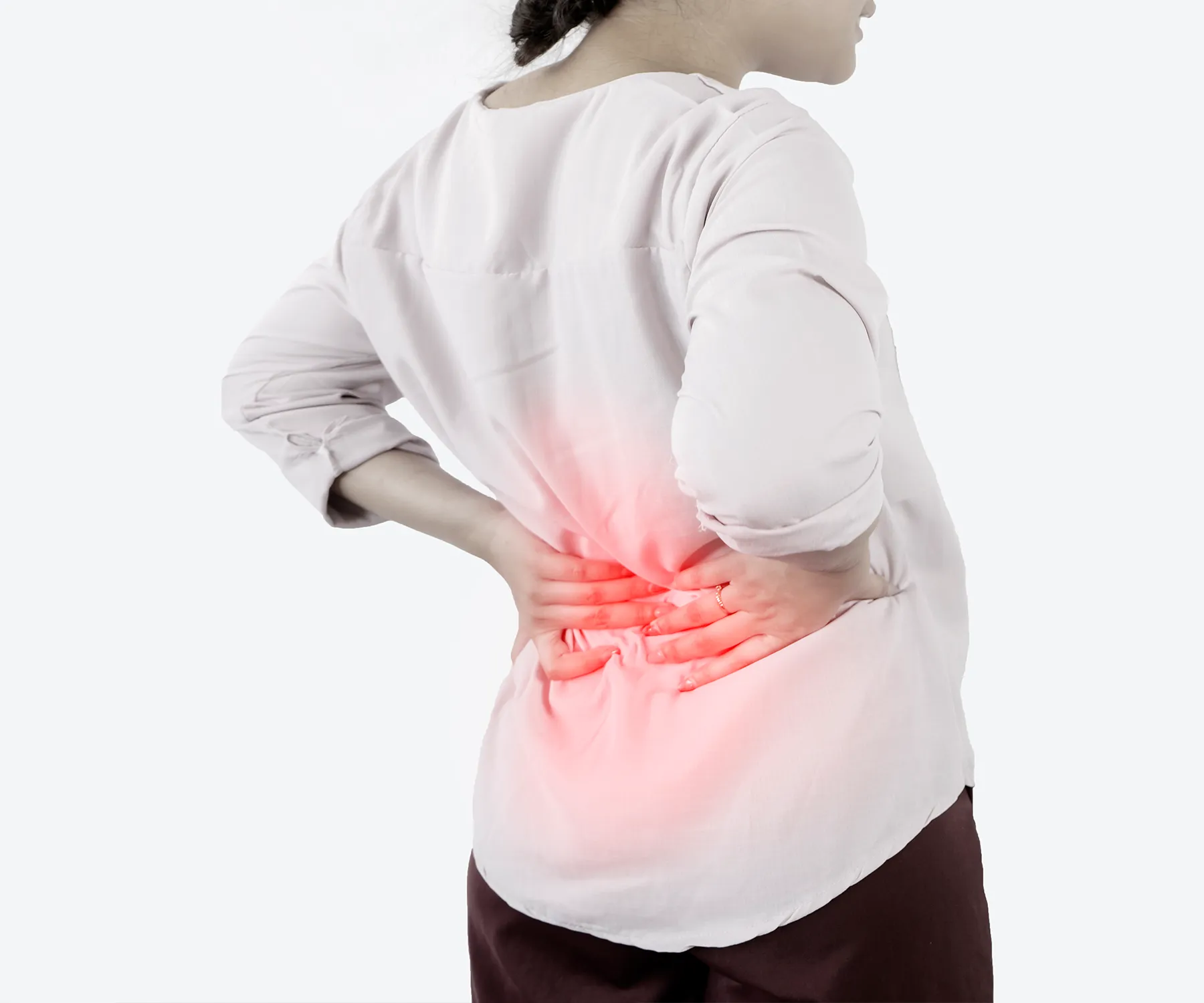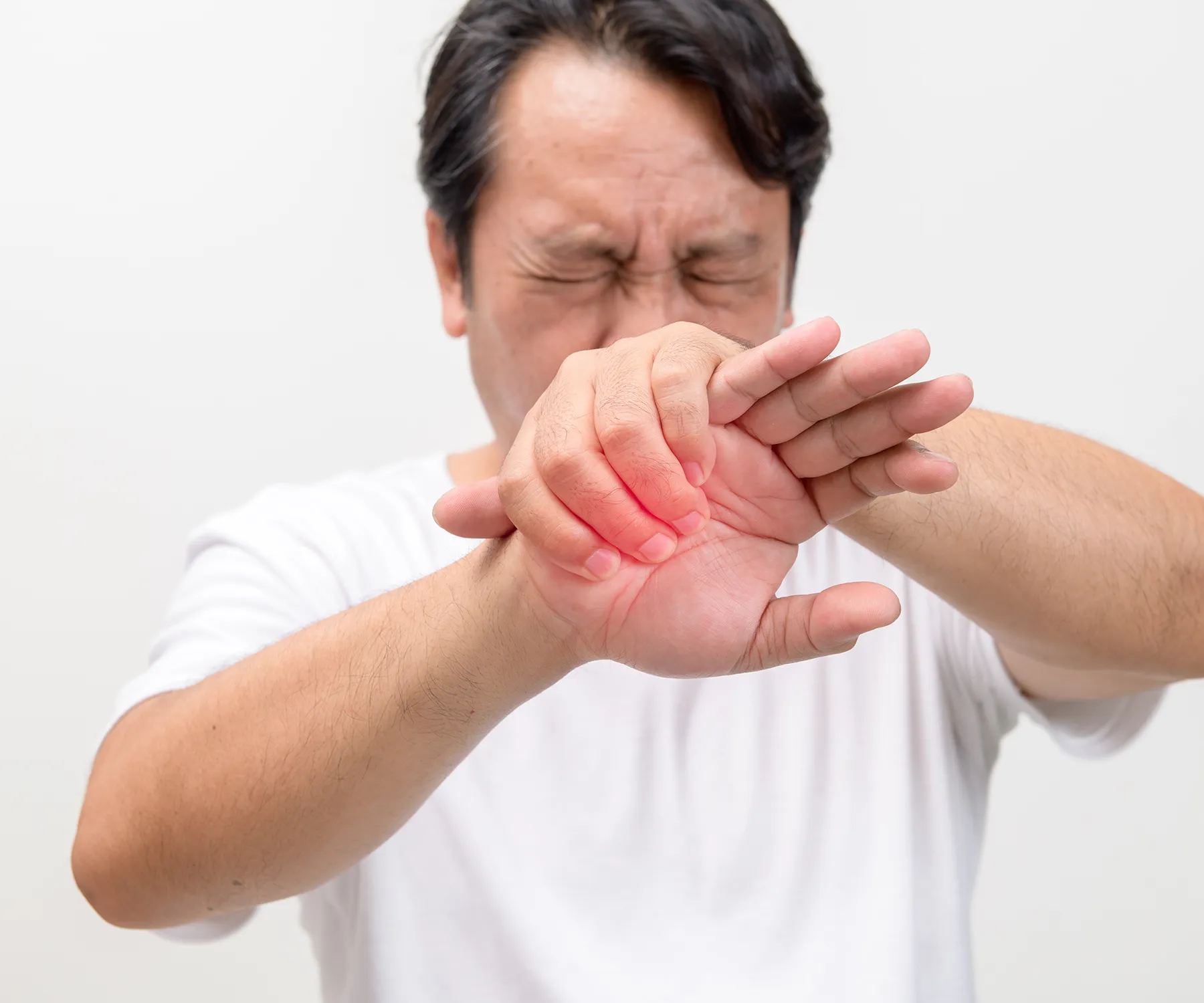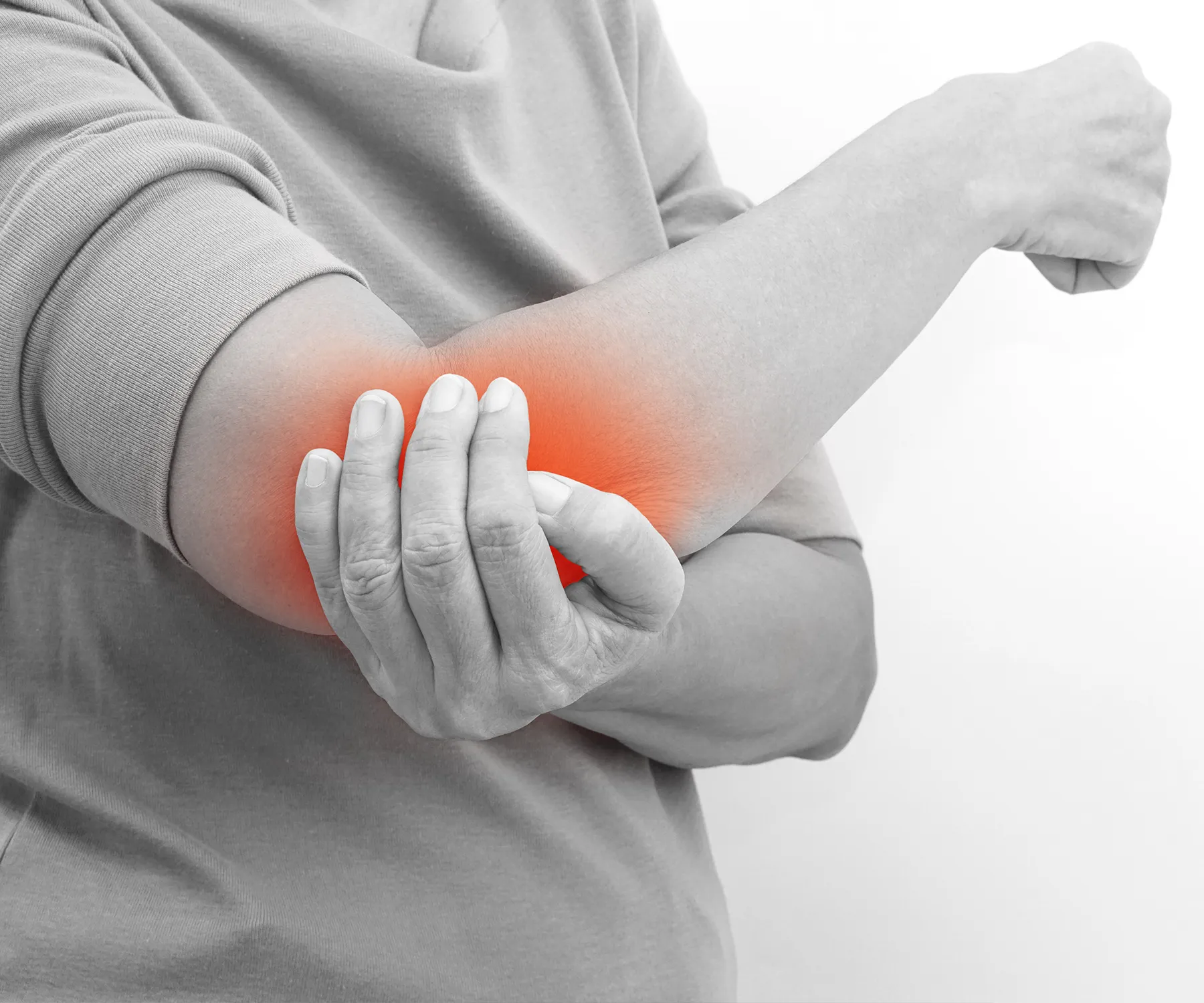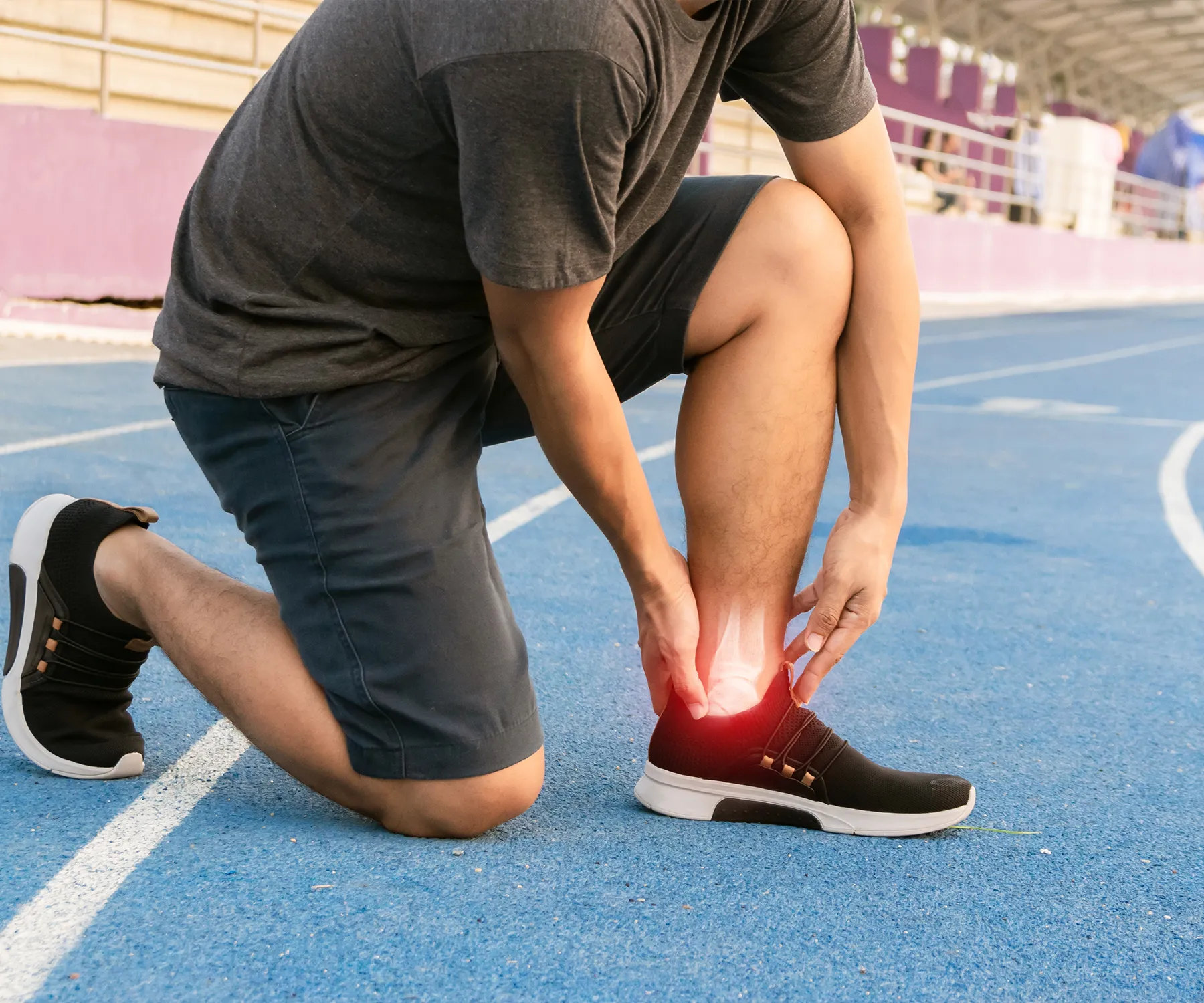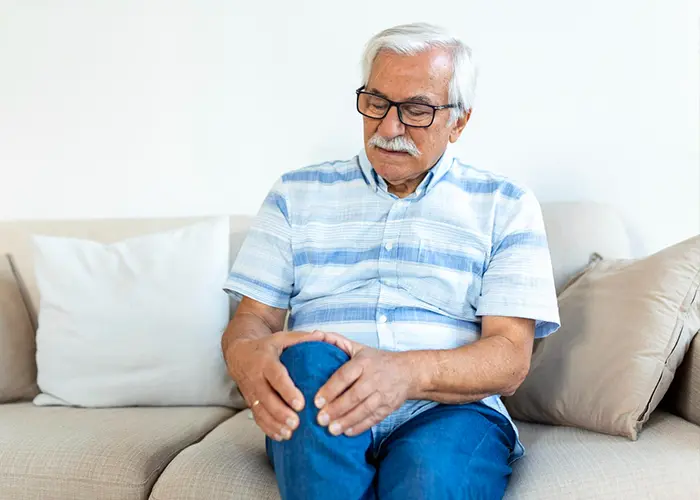
Is Old Age Making You Go Weak in the Knees?
More than 15 crore Indians suffer from knee problems, out of which four crores need a total knee replacement.
Knee pain can impact people of all ages, not just older individuals.
If you feel dull and nagging pain in your knees that makes simple walking difficult, don’t let it hinder your active lifestyle. Access physiotherapy for knee pain and keep moving forward.
Has this been happening to you lately?
Mild/Severe Pain
Pain and discomfort in an around knees – of various degrees
Swelling and Inflammation
Can lead to the knee feeling warm and tender to the touch
Stiffness and Reduced Mobility
Makes it challenging to bend or straighten the knee fully
Popping Sensation
Crunching sensation within the joint when moving or bearing weight on the knee
Instability/ Buckling
May result in the knee “giving out” or buckling unexpectedly during movement
Limited Range of Motion
Pain progression makes it difficult to flex or extend the knee joint fully
Redness and Warmth
Indicates that inflammation and an underlying issue that requires attention
Difficulty Bearing Weight
May lead to limping or avoiding putting weight on the knee altogether
What might be the reason behind your knee pain?
Do you recollect any recent falls or sudden leg movements that may have caused injury? Are you into sports? Do you perform activities like running, jumping and kneeling excessively?
Knee pain can have various underlying causes. Apart from the ones stated above, it is possible that another medical condition is adding to the trouble. This could also be related to the natural aging process, wear and tear of knee joints.
Physiotherapy for knee pain provides relief by
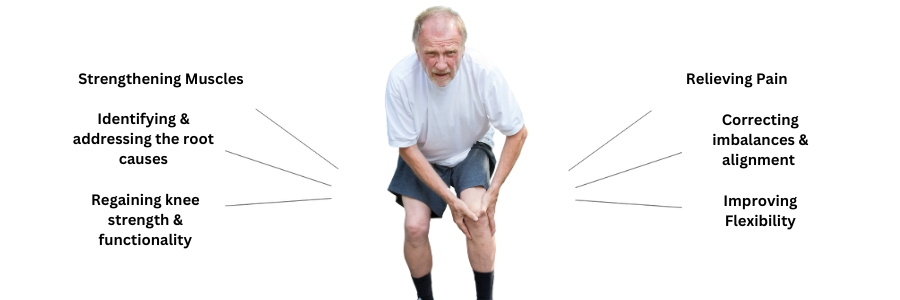
FAQs related to Knee Pain
Could my weight have contributed to my knee pain?
Yes. excess weight may have caused knee pain. Weight increases knee stress and damage. This can cause knee pain from osteoarthritis or muscle and ligament tension. Healthy weight reduces knee discomfort and improves joint health.
Does knee pain go away on its own?
Depending on the underlying cause, knee discomfort may go away on its own. Rest, ice, and over-the-counter painkillers may help minor sprains or injuries heal. However, if the discomfort continues or gets worse, it can be a sign of something more serious that needs medical care, including arthritis or ligament damage.
When do I need to see a doctor?
If you have severe or persistent knee pain that limits your regular activities, lasts for more than a few days, or gets worse over time, you should visit a doctor. Additionally, if there is warmth, redness, swelling, or if the knee feels unstable or locked, you should visit a doctor. It is crucial to speak with a healthcare provider for an accurate diagnosis and course of treatment if you have a history of knee problems, underlying medical illnesses, or if the pain is related to an injury.
How can I prevent knee pain?
There are various steps you may take to avoid knee pain. To ease the strain on the knees, keep a healthy weight, perform frequent low-impact exercises to strengthen the muscles that support the knees, and watch your form when exercising. Before working out, warm up, put on supportive shoes, and stay away from too many high-impact exercises. Stretching and flexibility exercises can help you improve joint mobility and lower your chances of developing knee pain.
Could my pain be from osteoarthritis?
Yes, osteoarthritis may be the cause of your knee pain. Knees can be affected by osteoarthritis, a prevalent condition that affects the joints. Pain, stiffness, and decreased joint mobility result from it as the protective cartilage that cushions the ends of bones gradually deteriorates with age. It’s crucial to see a doctor for a complete evaluation and diagnosis if you have chronic knee discomfort, especially as you age or have risk factors like a family history of osteoarthritis or joint traumas.
What kind of injuries can cause knee pain?
Knee discomfort can result from a number of injuries, including patellar tendonitis, bursitis, meniscus tears, ligament sprains or tears (such as ACL or MCL injuries), and bursitis. Furthermore, it can be brought on by overuse or repetitive strain from actions like jogging or leaping. Acute knee discomfort can result from fractures or dislocations. To determine the severity of the damage and receive the best care, it’s imperative to seek medical attention as soon as you encounter knee pain due to an injury.
What questions should I ask about knee pain?
Consider asking the following questions when discussing knee discomfort with a healthcare professional:
What could the root cause of my knee pain be?
Are any particular tests required for a precise diagnosis?
What medical conditions can be treated, and which choice is best for me?
Are there any exercises or alterations to one’s way of life that can help with knee pain?
What are the possible dangers or issues connected to the suggested course of treatment?
How long should the healing process take?
Should I refrain from doing certain things to protect my knees from further harm?
Are there any precautions that can be taken to lessen the likelihood of future knee pain episodes?
Is physiotherapy for knee pain an effective treatment option?
Absolutely, yes! Knee pain can be successfully treated with physiotherapy. The main goals of physiotherapy are to promote healthy joint alignment and function, increase flexibility, and strengthen the muscles around the knee.
In addition to enhancing knee stability and mobility, it can also help with pain relief and inflammation. Many people who experience knee pain find that physiotherapy is an effective and non-invasive treatment choice because a trained physiotherapist may design a customized treatment plan to address the unique reasons for knee pain.
Do painkillers help with knee pain?
Yes, medications can temporarily alleviate discomfort to aid with knee pain. Acetaminophen and nonsteroidal anti-inflammatory medicines (NSAIDs) are over-the-counter painkillers that can help reduce inflammation and relieve mild to moderate knee discomfort. However, it’s crucial to follow the instructions carefully and avoid depending on them as a permanent fix. It’s critical to see a medical practitioner for a clear diagnosis and detailed treatment plan if knee pain intensifies or lingers.
Is surgery required for knee pain?
Surgery is not always necessary for treating knee pain; it is usually only considered when all non-surgical options have failed to provide adequate relief. For many knee pain instances, non-surgical treatments like rest, physical therapy, medication, and lifestyle adjustments are frequently successful.
However, in order to restore function and relieve pain, surgery may be required for some disorders such significant ligament tears, advanced osteoarthritis, or specific accidents. Based on the patient’s unique condition and its response to alternative therapies, a certified orthopedic specialist should be consulted before deciding whether to have surgery.
How much time does it take to recover from ACL tear?
The severity of the injury, the patient’s age, general health, and compliance with the rehabilitation procedure are some of the variables that might affect how long it takes to recover from an anterior cruciate ligament (ACL) tear. After ACL repair surgery, it typically takes 6 to 9 months for athletes and other active people to resume their prior level of activity.
Although some people may need more time for a full recovery, rehabilitation efforts are essential to getting the best possible outcome. Based on your individual circumstances, an orthopedic surgeon or physical therapist can offer a more precise estimate.
What precautions should I take with a knee injury?
There are a number of precautions you should take if you have a knee injury in order to speed recovery and stop additional harm. If you can, avoid putting any weight on the hurt knee by resting it. Ice packs should be applied to minimize swelling and inflammation. Compression and elevation should be used to reduce swelling.
Consider utilizing crutches or a knee brace for assistance and refrain from engaging in vigorous activities that could make the injury worse. To guarantee a secure and efficient recovery process, seek medical care as soon as possible. This will allow for an accurate diagnosis and suitable treatment plan.
Can I cycle if I have knee pain?
The degree and underlying cause of the discomfort will determine whether you can cycle while experiencing knee pain. Cycling is typically seen as a low-impact activity that, when done appropriately, can be good for knee strengthening and rehabilitation.
It is crucial to quit cycling and see a doctor if the knee pain is severe or becomes worse while you’re doing it. They can assist in determining the source of the pain and offer guidance on appropriate cycling techniques or schedule changes to prevent future suffering and accelerate recovery.
Is physiotherapy for knee pain an effective treatment option?
Absolutely, yes! Knee pain can be successfully treated with physiotherapy. The main goals of physiotherapy are to promote healthy joint alignment and function, increase flexibility, and strengthen the muscles around the knee.
In addition to enhancing knee stability and mobility, it can also help with pain relief and inflammation. Many people who experience knee pain find that physiotherapy is an effective and non-invasive treatment choice because a trained physiotherapist may design a customized treatment plan to address the unique reasons for knee pain.
If I have knee pain, is it okay if I squat or use Indian toilet?
Squatting or using an Indian toilet while experiencing knee pain may make it worse, especially if you have trouble bending your knees or bearing weight on them. These actions put the knees under additional stress and might make the pain worse.
If you have knee pain, it is best to avoid these positions and instead think about using a toilet designed for Westerners or another seated choice that won’t place as much strain on your knees. Consult a doctor if the pain doesn’t go away to find the root of the problem and get the right care.
My knee stiffens at night. How can I relieve the discomfort?
Try the following remedies to ease the discomfort of a stiff knee at night:
Before going to bed, stretch your knees gently to increase flexibility and lessen stiffness.
Warm compress: To relax the muscles surrounding the knee and improve blood circulation, apply a warm compress or take a warm bath.
Elevating your leg when you sleep can help to lessen swelling and pressure on the knee. Use a pillow or cushion to do this.
Pain relief available over-the-counter: If your doctor has given the all-clear, think about taking acetaminophen or NSAIDs.
If the issue continues or gets worse, see a doctor for a thorough assessment and individualized treatment plan.
Can I lead a healthy life if I am diagnosed with Arthritis or Osteoporosis?
Yes, it is possible to live a healthy life even if you have osteoporosis or rheumatoid arthritis. Even though chronic conditions might be difficult to manage, making lifestyle changes can greatly enhance your quality of life. Regular exercise can assist preserve bone density and joint function.
Examples of this include strength training and low-impact activities. Bone health depends on a well-balanced diet full of vitamins and minerals like calcium and vitamin D. Additionally, managing symptoms and avoiding further issues can be aided by adhering to medical advice, taking prescribed medications, and scheduling routine checkups. Living a healthy lifestyle can enable people with osteoporosis or arthritis to carry on enjoying life and taking part in fulfilling activities.
